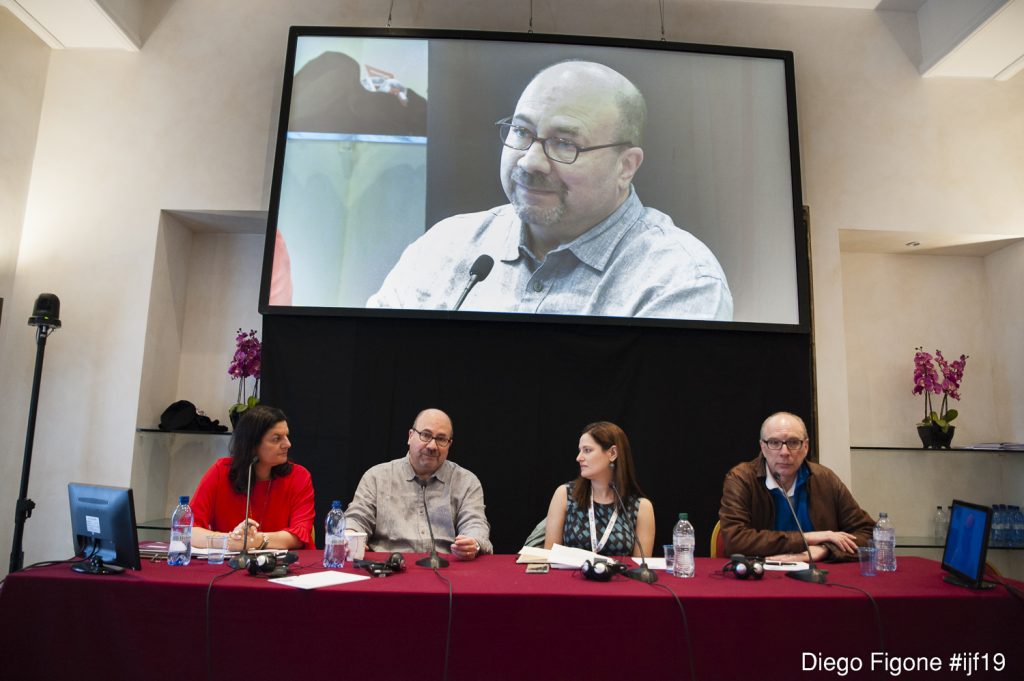Stay up to date by subscribing to our Newsletter or by following our Telegram channel, and join the conversation on Facebook, Twitter, and Instagram.
Edited by Marco Nurra
Watch all #ijf19 sessions on-demand: media.journalismfestival.com
Vanguards and rearguards in the fight for the future of journalism. “We need to deal with a divide in journalism between a vanguard who thinks the problem is journalism hasn’t changed enough and a rearguard that thinks the problem is that the world has changed too much,” writes Rasmus Nielsen, Reuters Institute Director. The Twitter thread that came out from the article is also very interesting. The post has been translated in Italian and Spanish.
Thanks, Emily. I will keep writing. But won’t be involved in efforts to change journalism after @membershippzzle. I was very affected by @nikkiusher‘s call, even though I am not on any boards of journals. https://t.co/jgxKa5WXrg For me it’s the right time to make room for others.
— Jay Rosen (@jayrosen_nyu) October 1, 2019
CNN rejects Trump campaign ads, citing inaccuracies. CNN has said that the 30-second spot about Joe Biden contains “assertions that have been proven demonstrably false” and unfairly attacks the network’s employees.
Wriggling out of accountability: Misinformation, evasion, and the informational problem of live TV interviews. There’s one option that could be considered by these programs: not inviting guests who will mislead audiences with provably inaccurate information.
Hoaxes about Greta Thunberg go after her family, image and activism. But why? “The manipulated image of Greta with Soros was an example of this, of people trying to show how the decision was driven by bigger powers.”
Singapore ‘fake news’ law set to come into force on Wednesday. The legislation will require online media platforms, including social media sites like Facebook and Twitter, to carry corrections or remove content that the government considers to be false. As Dan Gillmore said on Twitter: “Substitute ‘information censorship for ‘fake news’ and you’ve got the gist of what’s happening.”
Facebook can be forced to delete content worldwide, E.U.’s top court rules. The court said that countries can order Facebook to remove content and restrict global access to it, a ruling with potentially broad impact. As Europe has enacted tougher policies, its courts are being asked to clarify their scope, including whether Facebook, Google and others must apply the rules beyond the European Union’s borders. Last week, the European Court of Justice limited the reach of the privacy law known as the “right to be forgotten,” which lets European citizens demand that Google remove links to sensitive personal data from search results. The court said Google could not be ordered to remove links to websites globally, except in certain circumstances when weighed against the rights to free expression and the public’s right to information.
Aftershocks from Jamal Khashoggi’s murder still shake the Middle East. Reputation of the Saudi Crown Prince may never recover after the assassination a year ago.
Five tips for journalists on covering trans and nonbinary people. One of them is: Beware of false balance. Many journalists have been taught that a fair story gives airtime to opposing viewpoints in order to find an impartial middle ground. This approach to reporting quickly falls apart when it’s applied to historically oppressed groups of people. Reporters should not formulaically cite the arguments of anti-trans fringe groups when there is a lack of evidence to support their reasoning.
Reading political news in the age of Trump leaves people stressed, angry, and overwhelmed. “Now you feel like every day there’s a new decision and a new statement and a new issue that you need to know about.” “I think I’m taking like a slight media sabbatical, just because it’s been, like, so heavy with what Trump is doing.”
Covering whistleblowers: 6 tips for journalists. Throughout history, whistleblowers have played an important role in bringing corruption, fraud, waste and other improprieties to light worldwide. But journalists face serious challenges in doing this kind of reporting, especially when it involves world leaders and the federal intelligence community.
The International Journalism Festival #ijf19 On-Demand
Every week, one recommendation from the extensive programme of the last edition of the International Journalism Festival.

Today we are inviting you to watch “Fair and balanced” or “False equivalence?”. In an era when politicians around the world are promoting false narratives and accuse anyone who fact-checks them of being “fake news,” it is a journalist’s responsibility to continuously point out lies, or has ardent fact-checking become too politicized? When we repeatedly criticize, do we risk becoming partisan? The press needs to be truthful yet even-handed, but in an era when lies travel around the world faster than the truth can get out of bed, do journalists need to leave behind old models of “both sides” journalism and give audiences a “truth sandwich” instead?

